
Many may remember Billie Jean King from her triumphant and unexpected win in the 1973 “Battle of the Sexes” game. Ninety million people tuned into watch the match between her and Bobby Riggs.
“I was at that game,” recalls actress, comedian Lily Tomlin. “I knew nothing about tennis back then but I knew this was history in the making.”
Tomlin is a producer of the new stage version of “Billie Jean” now performing at Chicago’s Shakespeare Theater.
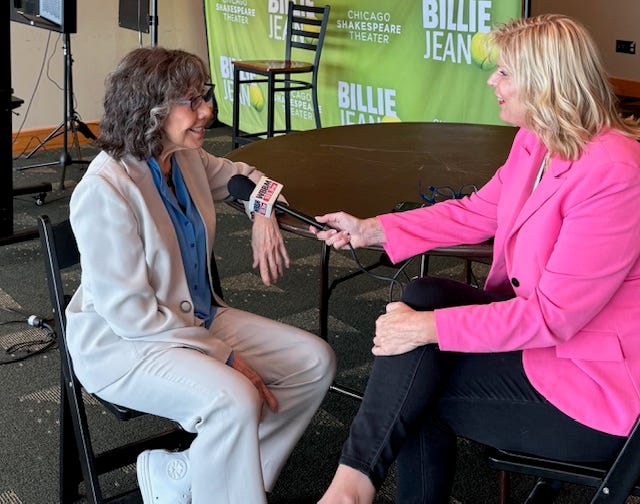
“I wanted to be a part of this project. I knew Billie Jean King impacted so many things. She is a gay woman, I’m gay. My partner Jane Wagner and I knew we wanted to be a part of it.”
King changed the world and the narrative about women’s rights after she won that tennis match.
“I love stories about women particularly stories about moments that matter,” said Lauren Gunderson, award winning play write.
Gunderson says "Billie Jean" tells the story of when the tennis icon first stepped on the court to her advocacy work and her battle with identity and equality.
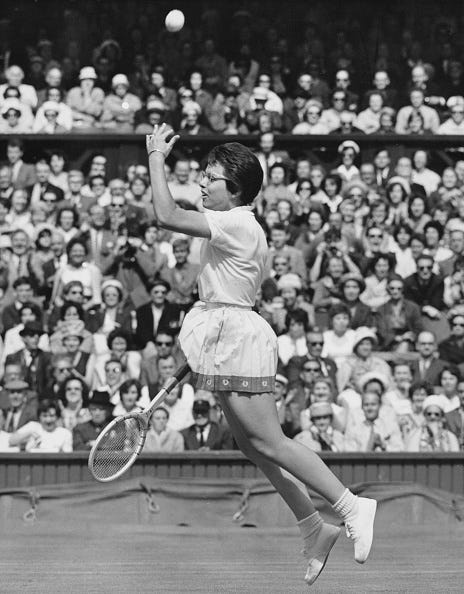
“The show is aimed at the Riggs match but not to see the Riggs match and not to see him. We know what happened. What we need to see is the fortitude and the courage to get through, saying 'I know I need to do this.' For that to have any context we need to know who she is as a person,” said Gunderson.

Gunderson says the story starts back in 1955 when King first stepped on a tennis court.
“We see this vivacious, curious, unstoppable spirit in a young girl who has turned into somebody who won’t stand for things that aren’t equal and that aren’t fair. I’m going to speak up, and prove myself through the game. The first arc of the story is her learning her passion for equality and justice and fighting for a larger community.”
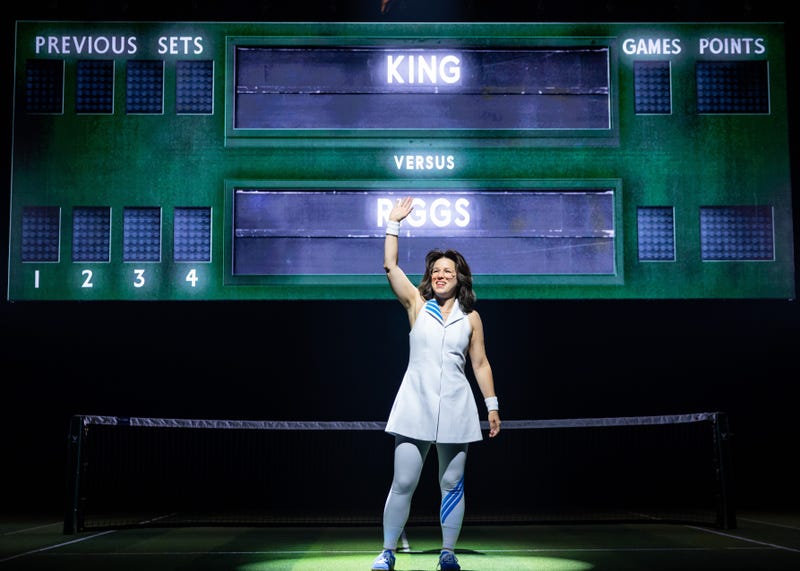
Actress Chilina Kennedy plays the title role.
“I’ve been living inside this role for a couple of years now. I think Billie Jean is such a brave person. When I think about what she was going through. 90 million viewers! The 'Battle of the Sexes' game wasn’t just a tennis match, she was playing for half the world, she was playing for all women." she shakes her head. "The pressure that that was, with no guarantees of the outcome. To really embody that sense, or the stakes of that is mind blowing,” said Kennedy, who used a movement coach to learn how King talks, her athleticism and her tennis style." said Kennedy.
“People are familiar with her backhand, they know the kind of aggressiveness she has when she’s at the net so I wanted to embody that. The Billie Jean now is a lot different now than the Billie Jean of the 70s so I went back and studied her interviews, her games and went through dozens of old clips.”
King has given her blessing to this story and she’s a consultant.
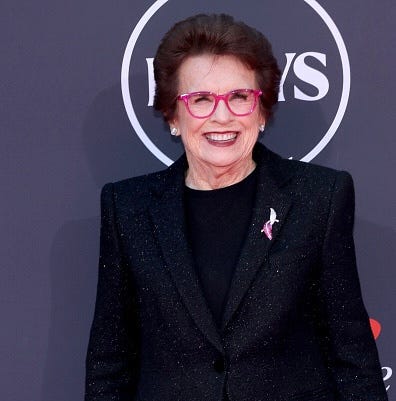
“She couldn’t be kinder to me. I’ve loved talking to her, getting to know her as a person. I'm a braver person and more generous person as a result of playing this role, said Kennedy.
For Gunderson, she says writing this story has changed her life.
“As a feminist, as a person who believes in great stories, her life is a great story even without me involved," she laughed. "To be able to tell it and to bring it to this moment is important because what she is for the world, and what theater is to the world; what can we find in our heroes, the humanity and lean into what we can we find in us through our heroes.” she said.
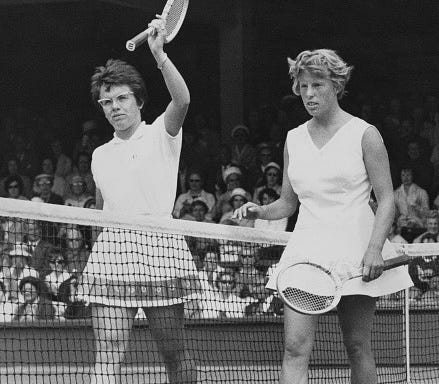
The women who’ve dedicated their time and art to the project say they hope audiences walk away from the show with a new perspective of how women like King risked it all for change.
“This is an epic journey about community and fighting for yourself, fighting for who you are, fighting for what the world should be, it’s really been a dream for me.” said Gunderson. “It’s a show about where we’ve been, how we got through that and how can we use those lessons today,” added Gunderson.

“You don’t have to be an athlete to relate to Billie Jean because if you’ve ever been underestimated or dismissed, you’ll understand.” said Tomlin. “I’m hoping audiences walk away with the idea that one voice is so powerful in changing the system, the entire system. We are setting the stage for the next generation of change makers,” she smiled.
King was ranked the number one tennis player in the world in 1966, 1967, 1968, 1971, 1972, and 1974, she won a record 20 career titles at Wimbledon.
King led player efforts to support the first professional women's tennis tour in the 1970s and campaigned for equal prize money in the men's and women's games.
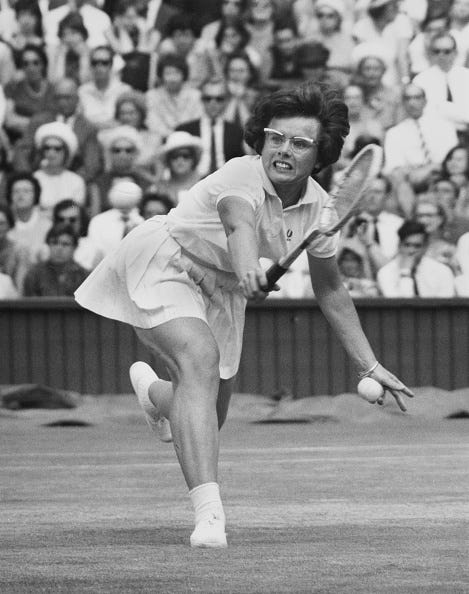
On August 12, 2009, President Barack Obama awarded King the Presidential Medal of Freedom for her work advocating for the rights of women and the lesbian, gay, bisexual, and transgender community.
“Billie Jean” is at the Yard at The Shakespeare Theater through August 10th. Tickets are available at chicagoshakes.com.
